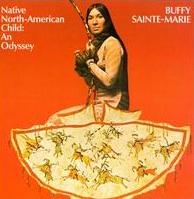
Buffy Sainte-Marie, is an American singer-songwriter, musician, and social activist.
Indigenous music of Canada encompasses a wide variety of musical genres created by Aboriginal Canadians. Before European settlers came to what is now Canada, the region was occupied by many First Nations, including the West Coast Salish and Haida, the centrally located Iroquois, Blackfoot and Huron, the Dene to the North, and the Innu and Mi'kmaq in the East and the Cree in the North. Each of the indigenous communities had their own unique musical traditions. Chanting – singing is widely popular and most use a variety of musical instruments.

The Adventures of Panama Red is the fourth country rock album by the New Riders of the Purple Sage, released in 1973. It is widely regarded as one of the group's best efforts, and reached number 55 on the Billboard charts.
"Universal Soldier" is a song written by singer-songwriter Buffy Sainte-Marie. The first released recording was a single by The Highwaymen, released in September 1963. The song was also released on Sainte-Marie's debut album It's My Way!, released in April 1964. "Universal Soldier" was not an immediate popular hit at the time of its release, but it did garner attention within the contemporary folk music community. It became a hit a year later when Donovan covered it, as did Glen Campbell. Sainte-Marie said of the song: "I wrote 'Universal Soldier' in the basement of The Purple Onion coffee house in Toronto in the early sixties. It's about individual responsibility for war and how the old feudal thinking kills us all." The idea was based on that politicians, with power over the military, in democratic states are elected by the people.
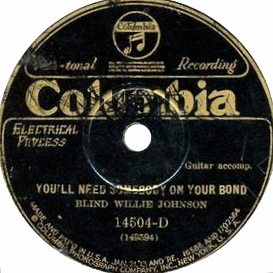
"You'll Need Somebody on Your Bond" is a gospel song that is attributed to both tradition and to gospel blues musician Blind Willie Johnson. Johnson first recorded the song in December 1930, although Delta blues musician Charley Patton recorded a similar "You're Gonna Need Somebody When You Die" in October 1929. Over the years, several other musicians have recorded renditions of the song.

Try for the Sun: The Journey of Donovan is the second CD boxed set from Scottish singer-songwriter Donovan. It was released on 13 September 2005.

It's My Way! is the first album by folk musician and songwriter Buffy Sainte-Marie. It was released in April 1964 through Vanguard Records. It was later released in Britain in early 1965 by Fontana Records. The album would become influential in the folk community. It is most famous for two widely covered folk standards, "Universal Soldier" and "Cod'ine", as well as "Now That the Buffalo's Gone", a lament about the continued confiscation of Indian lands, as evidenced by the building of the Kinzua Dam. The cover features a mouthbow, which was to be a trademark of her sound on her first three albums.

Little Wheel Spin and Spin is the third album by Buffy Sainte-Marie, released in 1966. It was her only album to reach the Top 100 of the Billboard 200. Its most famous song is "My Country 'Tis of Thy People You're Dying," which displayed a native perspective on the colonisation of North America.

I'm Gonna Be a Country Girl Again is the fifth album by singer/songwriter Buffy Sainte-Marie. As its title suggested, it saw her embrace Nashville country music with the help of session veterans such as the Jordanaires, Grady Martin, Roy M. Huskey, Jr. and Floyd Cramer. The album included re-recordings of "Now That the Buffalo's Gone" and "The Piney Wood Hills" from her first and second albums respectively. "Tall Trees in Georgia", in contrast to most of the material, showed Sainte-Marie performing in a style reminiscent of her earliest work.

She Used to Wanna Be a Ballerina is the seventh album by Buffy Sainte-Marie, released in 1971.
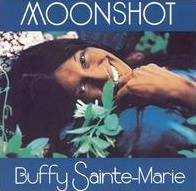
Moonshot is a studio album by American singer-songwriter Buffy Sainte-Marie, released in 1972 by Vanguard Records.
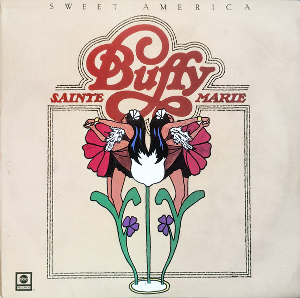
Sweet America was the twelfth studio album by Buffy Sainte-Marie and her last before retiring from music to work on Sesame Street and in education. The album was dedicated to the American Indian Movement and featured some songs with tribal rhythms and vocals that she was later to develop on her 1992 comeback Coincidence and Likely Stories.
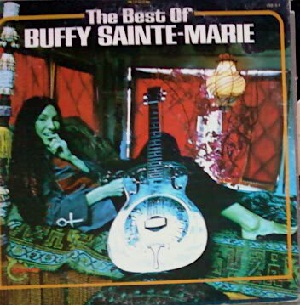
The Best of Buffy Sainte-Marie is a compilation album taken from her first six albums with Vanguard Records, released in 1970.
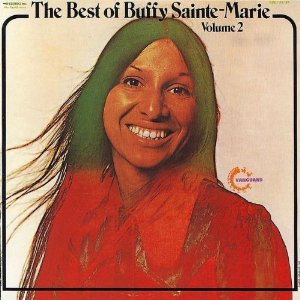
The Best of Buffy Sainte-Marie Vol. 2 is a compilation double album released by Vanguard Records in 1971 covering a large proportion of the material she had released on her first six albums for the label that was not found on the previous year's The Best of Buffy Sainte-Marie.

Running for the Drum is the fourteenth studio album by Buffy Sainte-Marie, released in 2008. One of Sainte-Marie's more successful albums, it spawned one single with "No No Keshagesh". Sainte-Marie also rewrote two verses of "America The Beautiful".
"Cod'ine" is a contemporary folk song by the singer-songwriter Buffy Sainte-Marie. Considered one of the earliest anti-drug songs, Sainte-Marie wrote the piece after becoming addicted to codeine which she had been given for a bronchial infection. She recorded it for her debut album, It's My Way! (1964).
"Now That the Buffalo's Gone" is the first song from the 1964 album It's My Way! by singer-songwriter Buffy Sainte-Marie. The song's title refers to the near-extinction of the American bison and serves as a metaphor for the cultural genocide inflicted by Europeans. A classic folk protest song, "Now That the Buffalo's Gone" has a simple arrangement with guitar and vocals by Sainte-Marie and bass played by Art Davis. The song is a lament that addresses the continuous confiscation of Indian lands. In the song, Sainte-Marie contrasts the treatment of post-war Germany, whose people were allowed to keep their land and their dignity, to that of North American Indians.

The 2015 edition of the Canadian Polaris Music Prize was presented on September 21, 2015 at The Carlu event theatre in Toronto, Ontario. The event was hosted by children's entertainer Fred Penner.

Power in the Blood is the fifteenth studio album by Buffy Sainte-Marie, released May 12, 2015, on True North Records.
"The Circle Game" is a song by Canadian singer-songwriter Joni Mitchell composed in 1966. One of her most-covered songs, it was originally recorded by Ian & Sylvia and Buffy Sainte-Marie in 1967, and by Tom Rush for his 1968 album of the same name. Mitchell recorded it for her 1970 album Ladies of the Canyon; it also appears on her 1974 live album Miles of Aisles.
